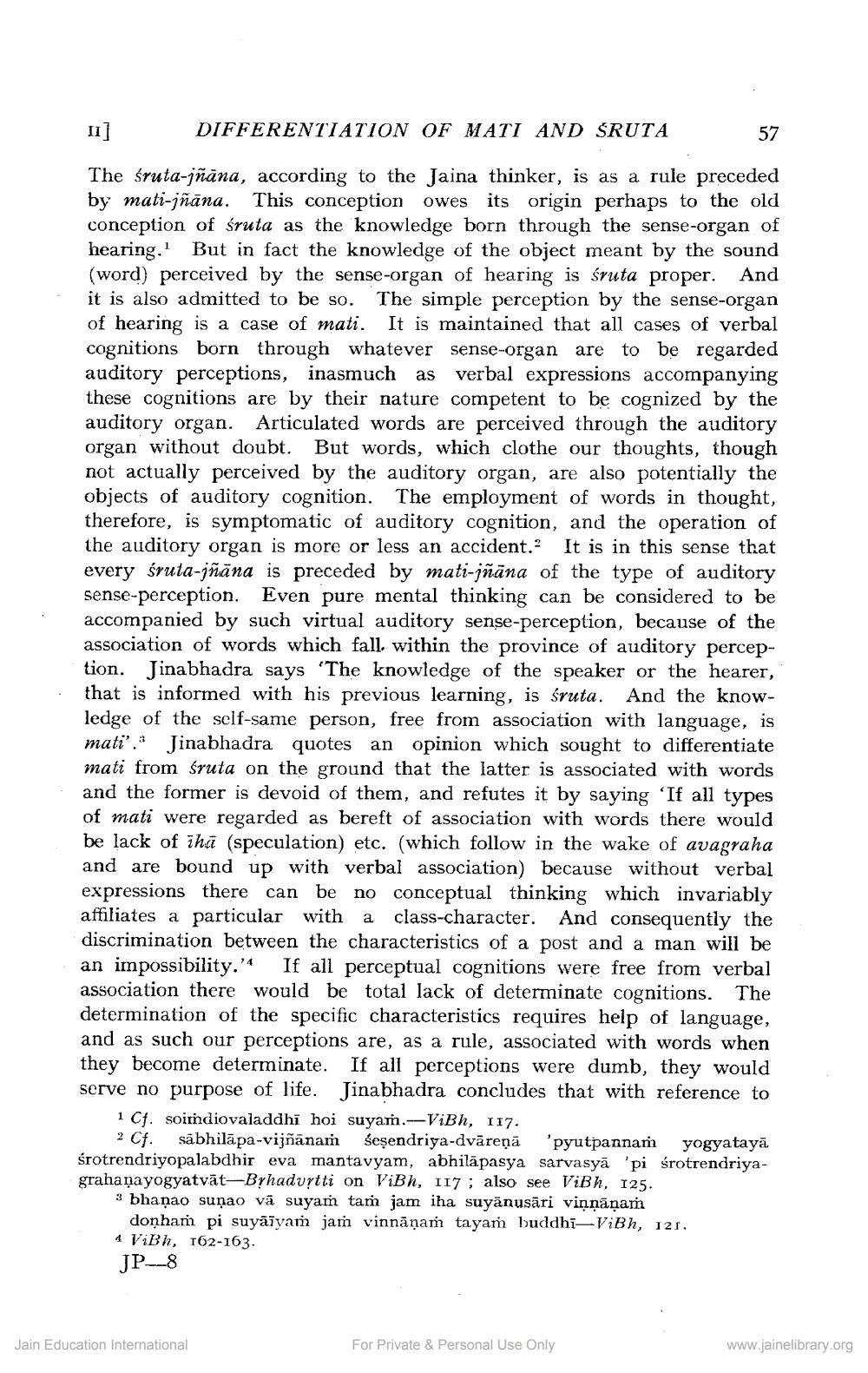________________
II]
The śruta-jñāna, according to the Jaina thinker, is as a rule preceded by mati-jñāna. This conception owes its origin perhaps to the old conception of śruta as the knowledge born through the sense-organ of hearing. But in fact the knowledge of the object meant by the sound (word) perceived by the sense-organ of hearing is śruta proper. And it is also admitted to be so. The simple perception by the sense-organ of hearing is a case of mati. It is maintained that all cases of verbal cognitions born through whatever sense-organ are to be regarded auditory perceptions, inasmuch as verbal expressions accompanying these cognitions are by their nature competent to be cognized by the auditory organ. Articulated words are perceived through the auditory organ without doubt. But words, which clothe our thoughts, though not actually perceived by the auditory organ, are also potentially the objects of auditory cognition. The employment of words in thought, therefore, is symptomatic of auditory cognition, and the operation of the auditory organ is more or less an accident. It is in this sense that every śruta-jñāana is preceded by mati-jñāna of the type of auditory sense-perception. Even pure mental thinking can be considered to be accompanied by such virtual auditory sense-perception, because of the association of words which fall. within the province of auditory perception. Jinabhadra says 'The knowledge of the speaker or the hearer, that is informed with his previous learning, is śruta. And the knowledge of the self-same person, free from association with language, is mati'. Jinabhadra quotes an opinion which sought to differentiate mati from śruta on the ground that the latter is associated with words and the former is devoid of them, and refutes it by saying 'If all types of mati were regarded as bereft of association with words there would be lack of iha (speculation) etc. (which follow in the wake of avagraha and are bound up with verbal association) because without verbal expressions there can be no conceptual thinking which invariably affiliates a particular with a class-character. And consequently the discrimination between the characteristics of a post and a man will be an impossibility.' If all perceptual cognitions were free from verbal association there would be total lack of determinate cognitions. The determination of the specific characteristics requires help of language, and as such our perceptions are, as a rule, associated with words when they become determinate. If all perceptions were dumb, they would serve no purpose of life. Jinabhadra concludes that with reference to 1 Cf. soimdiovaladdhi hoi suyam.-ViBh, 117. 2 Cf.
DIFFERENTIATION OF MATI AND SRUTA
Jain Education International
sābhilāpa-vijñānaṁ śeşendriya-dvāreņā 'pyutpannam yogyataya śrotrendriyopalabdhir eva mantavyam, abhilapasya sarvasya 'pi śrotrendriyagrahaṇayogyatvät-Bṛhadvṛtti on ViBh, 117; also see ViBh, 125.
bhanao suņao va suyam tam jam iha suyānusāri vinṇāṇam donham pi suyaiyam jam vinnaņam tayam buddhi-ViBh, 121. 4 ViBh, 162-163.
JP-8
57
For Private & Personal Use Only
www.jainelibrary.org




